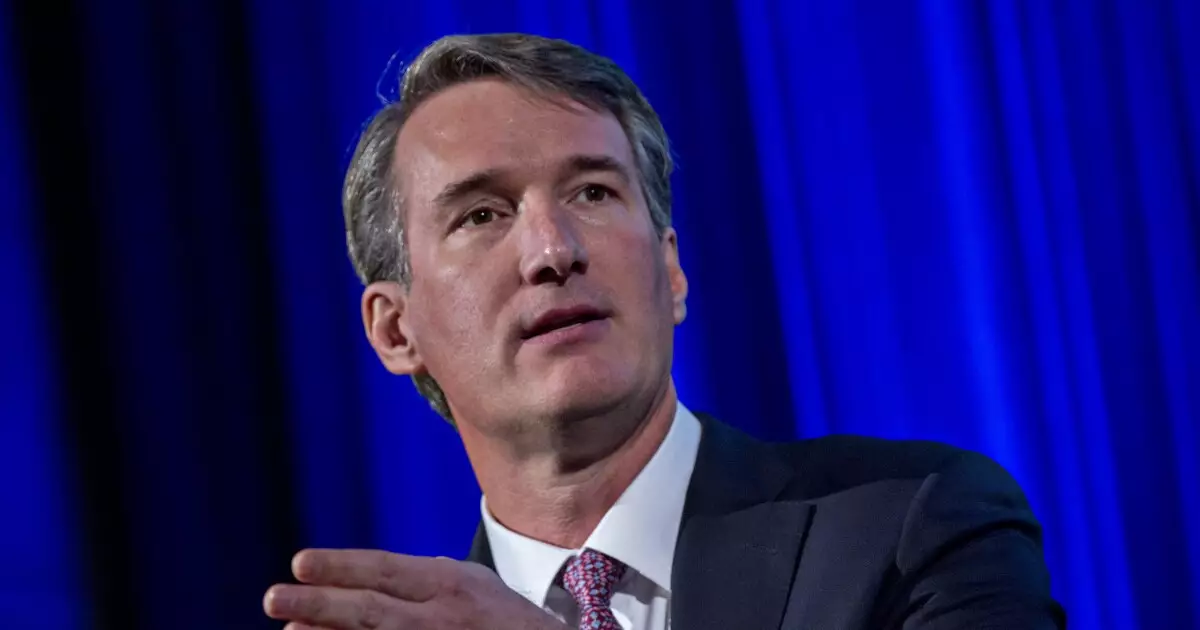As economic conditions improve, states across the U.S. are finding themselves in the fortunate position of budget surpluses. Virginia is no exception, yet the path to utilizing this surplus is fraught with political tension. Lawmakers have announced a significant tax rebate plan, much to the dismay of Republican Governor Glenn Youngkin, who initially proposed a different approach to managing the state’s surplus. This situation underscores the divergence between the governor’s proposals and the legislature’s intent, casting a spotlight on the complexities that emerge when fiscal excess meets political ambition.
The tax rebate plan, which the Democrat-controlled General Assembly has voiced support for, proposes to return funds to taxpayers in the form of direct payments. Individuals would receive $200, while couples stand to gain $400. Additionally, legislators agree on increasing the standard state income tax deduction, aiming to ease the financial burden on Virginians. This momentum, however, is tempered by Youngkin’s vision of utilizing state resources differently. By proposing alterations to the personal property tax applicable on vehicles, he intends to distribute his own version of a billion-dollar rebate. Currently anchored at a rate of 4.15%, the vehicle tax is integral to local and state revenue streams, which makes any significant modifications provocative in the political landscape.
Virginia’s political dynamics have historically been characterized by struggle between the governor’s mansion and the General Assembly. Youngkin has faced pushback in previous budgetary discussions as illustrated by failed plans for new infrastructure projects, such as the proposed sports arena in Alexandria. This political tug-of-war has implications not only for the current budget negotiation process but also for the governor’s longer-term aspirations on a national stage. Youngkin’s posture signals potential ambitions beyond state politics, which complicates his relationship with local lawmakers who are focused on immediate voter concerns.
Virginia’s plan to redistribute surplus revenues through tax rebates reflects a larger trend among states experiencing budgetary excesses. However, this approach brings its own set of concerns. Public policy experts caution against the potential pitfalls of dependence on temporary surpluses to fund sustained tax relief initiatives. While tax rebates are politically appealing—offering immediate relief to constituents—there is a risk that this practice could lead to revenue instability in future budgets. The goal of providing relief must be balanced with fiscal prudence to ensure that essential services are not jeopardized amidst fluctuating revenue streams.
As the clock ticks down toward the budget deadline on February 22, collaboration between the Democratic-led General Assembly and the Republican governor is critical. Should they fail to reach a consensus, the current budget, which may not reflect the financial realities of a surplus, will remain in place. This impasse may also have broader implications for Virginia’s financial health. If agreements are not made regarding the distribution of surplus funds, both the government and its citizens could face setbacks in areas such as infrastructure investment and public service funding.
Despite the political wrangling, Virginia’s economic fundamentals remain robust. Recently, Fitch Ratings reaffirmed Virginia’s ‘AAA’ Long-Term Issuer Default Rating, attributing it to the state’s numerous strengths, including stable revenue generation capabilities and sound fiscal management. Such ratings not only bolster investor confidence but also allow for favorable borrowing terms when the state seeks funding for essential projects. The long-term economic outlook will significantly influence future budget decisions, making it imperative for policymakers to navigate the current situation astutely.
As Virginia grapples with its budget surplus and the multifaceted political landscape, the outcome of this tax rebate debate will resonate well beyond immediate financial relief for citizens. The need for cohesive strategies that harmonize short-term benefits with long-term fiscal responsibility is paramount. Ultimately, how Virginia’s leaders reconcile their differences and leverage the current economic landscape will determine the trajectory of the state’s fiscal future and the wellbeing of its constituents. The situation remains fluid, and all eyes are on the capitol as the February deadline approaches.

